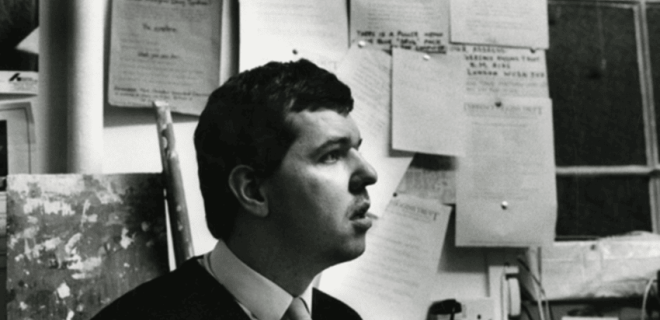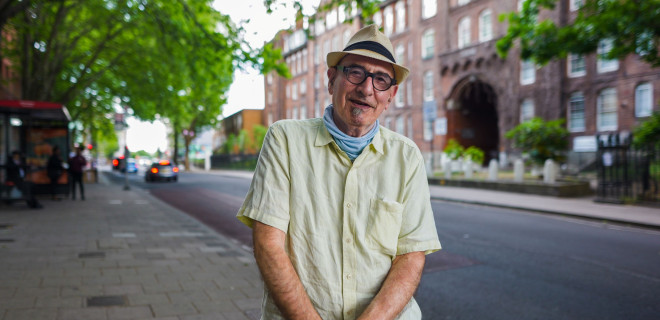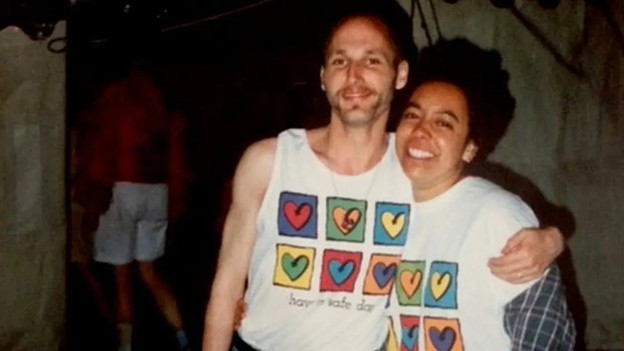
In commemoration of what would have been Terry Higgins’ 80th birthday, and all those who have died from HIV and AIDS-related illness, we’re taking a look at how Terrence Higgins Trust and the lives of people living with HIV have changed since the 1980s and 1990s.
Today, we’re looking at how support for people living with HIV has changed over time, from the Buddy Service and the work of Frontliners (a support group for people living with AIDS-related illnesses), to My Community today.
Buddy Service
Our Buddy Service, launched in 1983, was a response to the significant stigma and isolation that many people living with HIV experienced at the peak of the epidemic. The service paired people living with HIV with a Buddy, who provided care, support and friendship when many people turned their backs on those living with HIV.
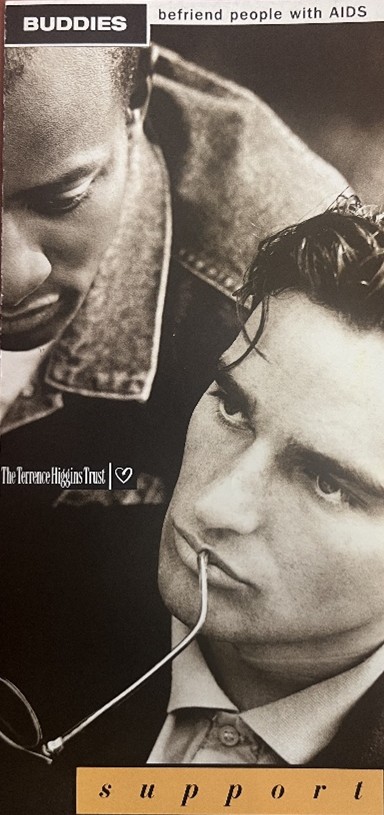
Buddies Support Leaflet
Ronan was diagnosed with HIV in 1991, and as a result lost his job as a restaurant manager. He became a wheelchair user, and had to vacate his inaccessible flat in Camden, London. Ronan was moved to a flat in Paddington but says, ‘I knew absolutely nobody. My old friends couldn’t come to terms with my diagnosis, and I was left very isolated.’ Ronan was paired with a Buddy, Norbert. He says, ‘Looking back to the early days, I can’t tell you how important his support was to me. The Buddy relationship is a very special one, not like with my family or friends, I don’t need to protect him or put a guard up.’
Michelle became a Buddy in the early 1990s, aged 21. After completing the ‘intense’ training necessary to become a Buddy, she was paired with a woman in her sixties who was living with HIV.
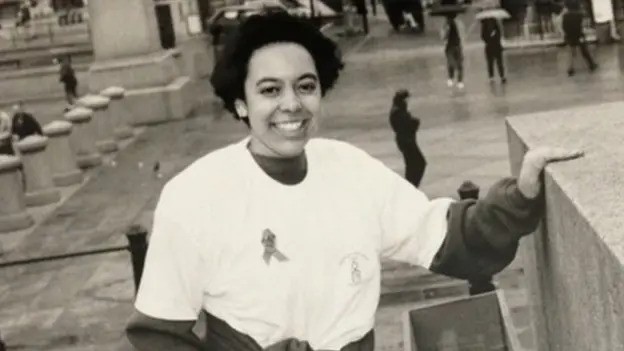
'I really saw how HIV impacted her life – especially the shame she felt of living with the virus. She was terrified of anyone finding out that she was living with HIV. We agreed to never mention why I was there, just in case.'
Michelle also visited people in hospital with HIV and AIDS-related illnesses, in specialist HIV wards such as the Broderip Ward at Middlesex Hospital, which opened in 1987, and was inaugurated by Diana, Princess of Wales.
'There were lots of hospital visits. I made sure people understood important information and made sure that their issues were heard.'
'As a Buddy, I was there to hear people’s stories, to advocate for them, and to just be around them and give them support when they needed it.’
The service was a significant form of support and comfort for people living with HIV, especially for many who were in the final stages of their life.
‘After a while I would stop asking where people were because you realised they'd been pretty sick and had probably died. Not that you got used to it, but it was a new normal.’
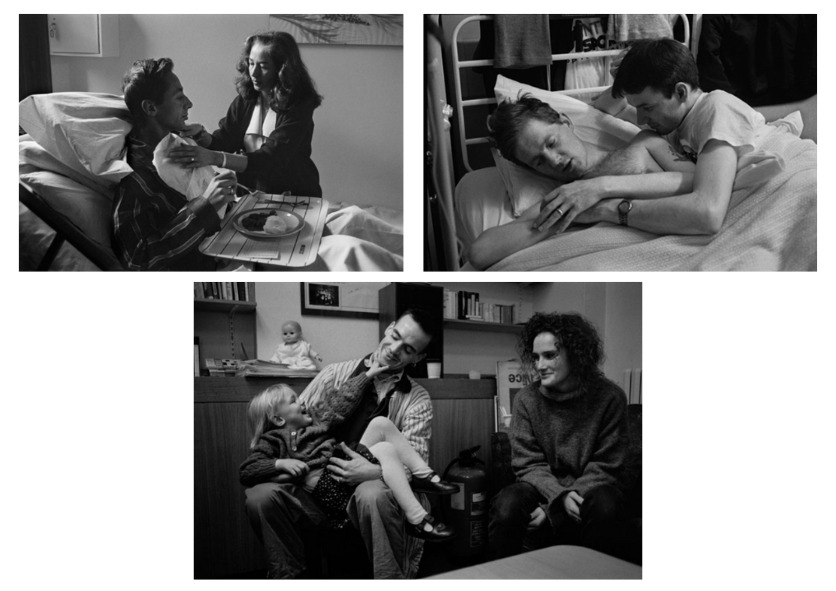
Photo credits: Gideon Mendel
As part of the ten-year anniversary of Terrence Higgins Trust in 1992, photographer Gideon Mendel undertook a project titled ‘The Ward’, in which he took photos of patients and nurses at the Broderip Ward. He documented what was happening for people living with AIDS-related illnesses, what life was like on the ward, and the people lost to the virus.
Though some staff and patients were initially sceptical about the project and the idea of documenting the ward, the photographs highlight the deep personal relationships developed between patients and staff, and the daily acts of care and humanisation that took place at the Broderip Ward.
Michelle speaks very fondly of her time as a Buddy and the relationships she formed: 'I was around so many amazing characters who helped me become who I am today.’
As Gideon says, ‘They were all very distinctive, very powerful characters in different ways.’
You can learn more about Gideon’s work at the Broderip Ward through his book, The Ward. Interviews with the families of John, Stephen, and André, Gideon Mendel, and the clinical staff who worked on the Broderip Ward can also be viewed in The Ward Revisited.
Frontliners
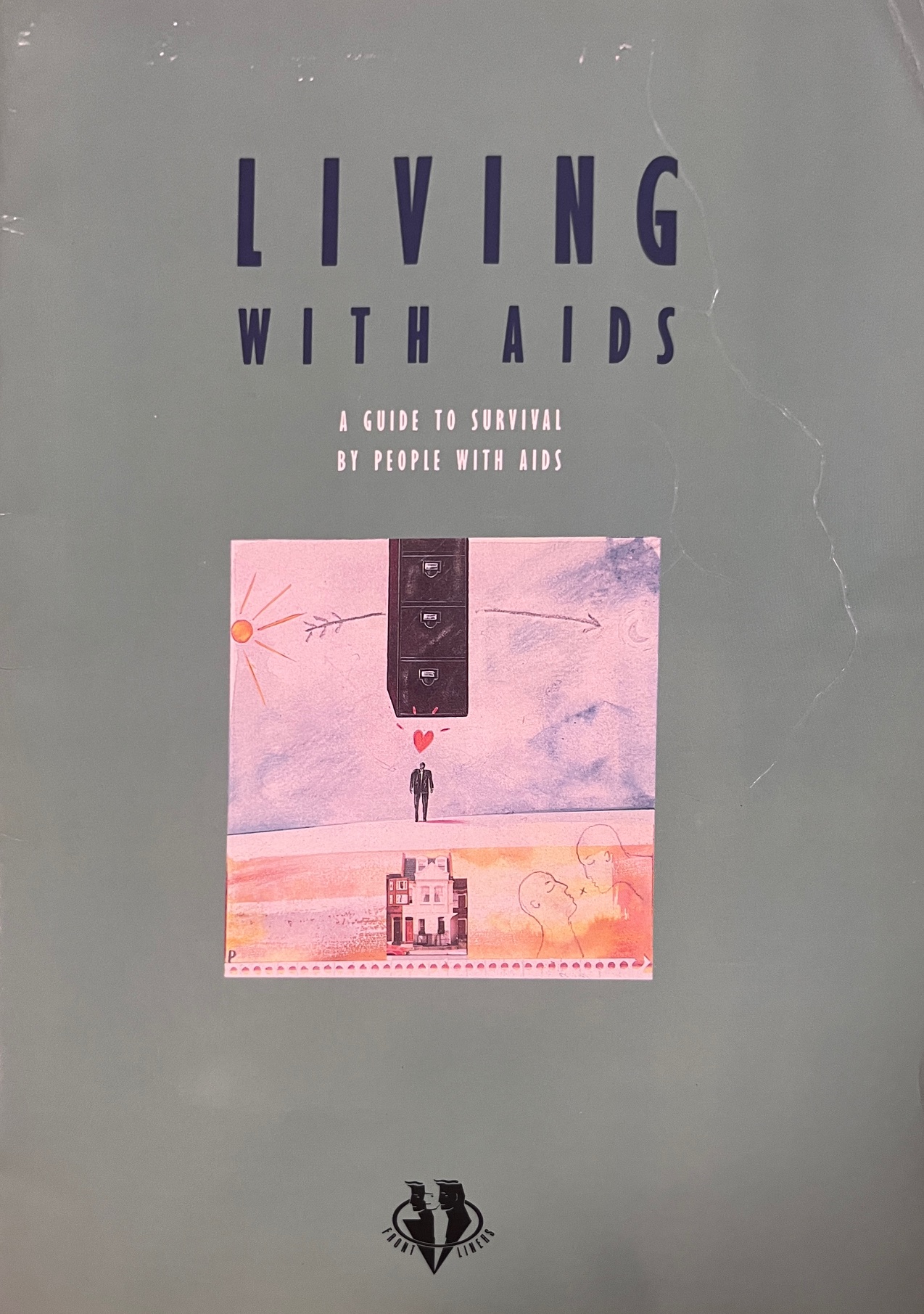
At the peak of the epidemic, we supported Frontliners, an advocacy and support group for people living with HIV, ran by people living with HIV.
Frontliners offered help and advice to people living with HIV on matters such as financial problems, welfare benefits, housing issues, and medical treatment. They offered emotional support and guidance: ‘Most of all we provide the emotional optimism that many people with AIDS-related illnesses so often need.’
The group included many people who also worked with Terrence Higgins Trust. Jim Wilson, who was International Liaison and Press Officer at Terrence Higgins Trust, was a key member of Frontliners, as well as its Chair.
We supported Frontliners in producing ‘Living with AIDS: A Guide to Survival by People with AIDS’.
‘It may be a difficult read for the newly diagnosed, but it normalised the feelings we all experienced’, said one contributor.
Sadly, most of the contributors to the book died before it was published. The book remains a lasting legacy of their support, hope and solidarity.
My Community
Today, with effective treatment people living with HIV can live long and healthy lives. However, stigma and isolation remain significant difficulties.
My Community is a free online space where people living with HIV can connect, whether to share personal experiences of living with HIV, ask questions and seek advice from peers about living with HIV, or to chat about hobbies such as film or music.
Vicky joined My Community following her diagnosis. She says that the forum was a ‘real lifesaver’, helping her to feel less isolated and providing reassurance that things would be okay.

‘When I was diagnosed with HIV, it was an emotionally traumatic time and I felt like I was the only one. I felt immediately welcomed on the forum and it was immensely reassuring to be able to connect with others there.’
Vicky is now one of My Community's Volunteer Engagement Moderators, helping to manage the forum’s day-to-day activity, and support and signpost to others wherever they are in their own journey.
‘Volunteering for My Community is great for my continued wellbeing, and I’ve met some amazing people online.’
My Community is an important lifeline for people living with HIV, but it’s reliant on kind donations from people like you. Will you give a gift today to Do it for Terry and ensure that everyone living with HIV can receive the support they need through My Community?


